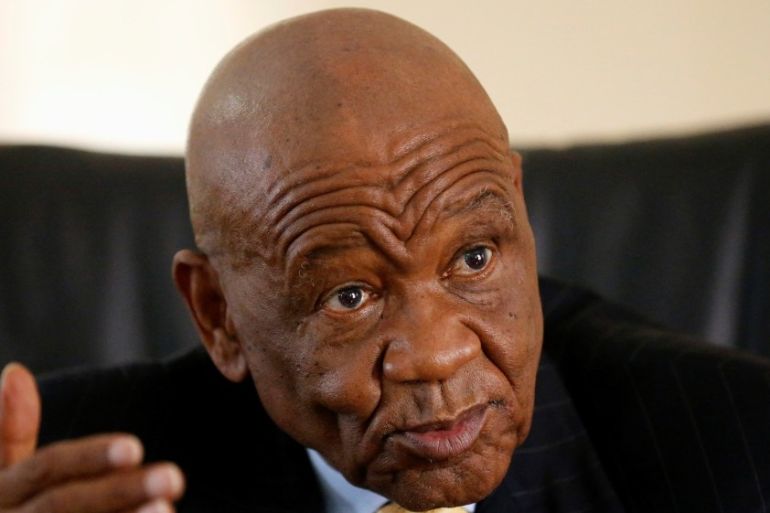Lesotho: Coalition government of PM Thomas Thabane collapses
National assembly speaker says embattled prime minister will have to step down by May 22.

The government of Lesotho Prime Minister Thomas Thabane has fallen apart in Parliament after his coalition partners withdrew their support, signalling a potential end to a lengthy political crisis that has gripped the country.
Announcing the collapse of the government majority, National Assembly Speaker Sephiri Motanyane said on Monday the embattled prime minister would have to step down by May 22, and the formation of a new administration could take two weeks.
Keep reading
list of 3 itemsMurder, power and army on the streets: Lesotho’s deepening crisis
Lesotho government commits to a ‘secure retirement’ for PM
There was no immediate comment by Thabane. The octogenarian in recent months has faced mounting pressure to leave office over a case in which he and his current wife are suspected of involvement in the 2017 murder of his previous, estranged wife. They both deny this.
Thabane’s own All Basotho Convention (ABC) and two other coalition parties on Monday ended their support for the prime minister’s four-party coalition.
“We have verified that the four-party coalition agreement has been terminated,” Motanyane said.
Sam Rapapa, deputy chairman of ABC, said all parties had provisionally agreed on Finance Minister Moeketsi Majoro to replace Thabane.
“Thabane is now a caretaker prime minister until May 22 when a new prime minister is sworn in,” Rapapa said.
Deepening crisis
Following intense criticism from political opponents and rivals within his own party, Thabane had promised to retire due to old age – but had been dragging his feet on when to do so.
In March, he suspended Parliament for three months shortly after the lower house passed a bill barring him from calling fresh elections if he lost a looming no-confidence vote. However, the country’s constitutional court on April 17 overturned his decision, bringing closer the possibility of the no-confidence vote.
|
|
The next day, Thabane sent troops onto the streets of the capital Maseru to “restore order”, accusing unnamed law enforcement agencies of undermining democracy.
The army withdrew the following day, but tension and uncertainty remained in a country with a long history of coups and military involvement in its often fragile politics.
South Africa, which entirely surrounds Lesotho, then dispatched a delegation to the tiny mountain kingdom for high-level talks aimed at calming the situation. In a joint statement, mediators said the coalition government and other stakeholders had agreed to guarantee a “dignified, graceful and secure” exit for Thabane.
The prime minister, however, hit back, saying he would not be told when to leave office.
King Letsie III last week assented to legislation that prevented Thabane from dissolving Parliament and calling an election in the event of a vote of no confidence against him.
Thabane first served as prime minister between 2012 and February 2015 when a split within the coalition government led to an early general election.
The succeeding government, led by Pakalitha Mosisili of the Democratic Congress party, was also rocked by divisions.
Mosilili lost a vote of no-confidence, and Thabane returned to power after a February 2017 vote as the head of the ABC-led coalition which was endorsed by three smaller political parties.